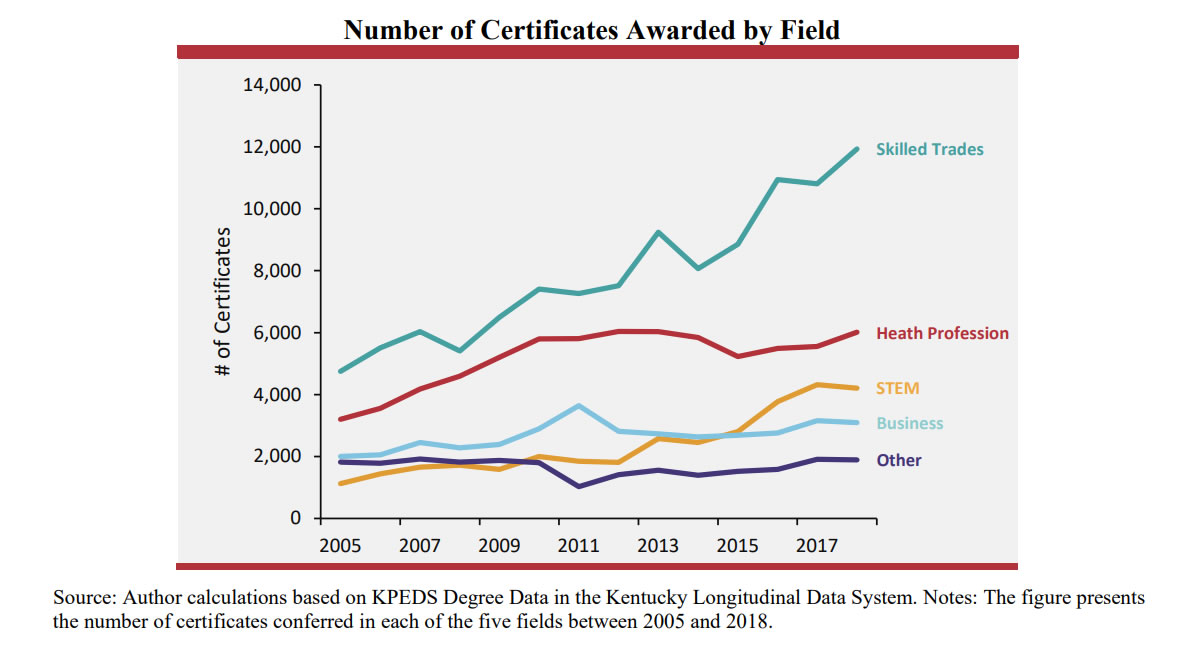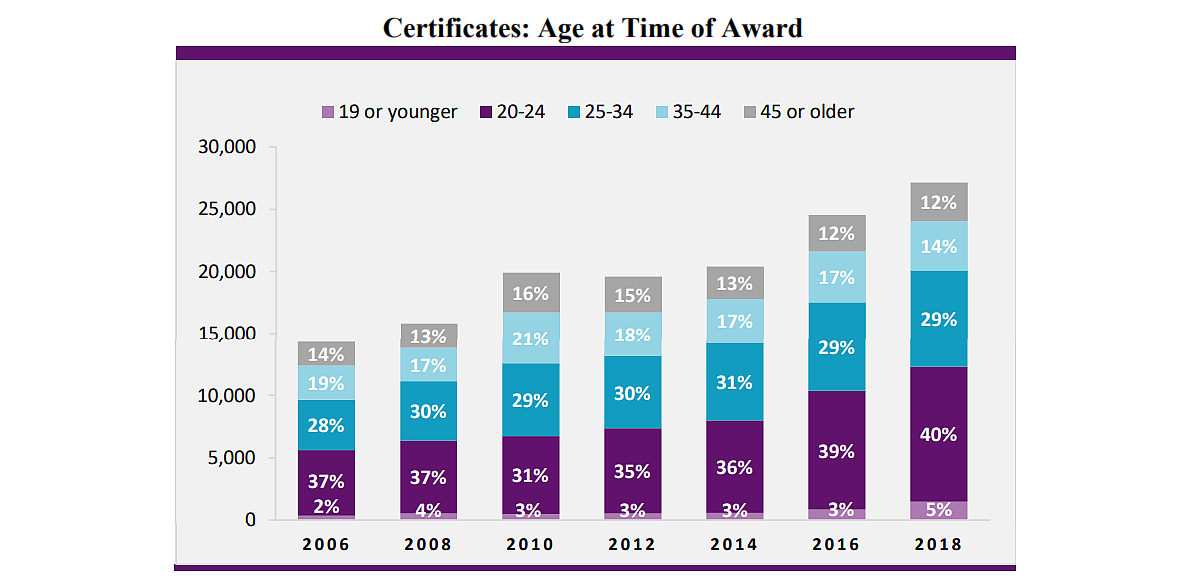Short-term credentials have surged 110% in Kentucky
July 06, 2021

New research funded by the Kentucky Council on Postsecondary Education (CPE) shows that more and more Kentuckians are heading to college to earn short-term certificates, particularly in STEM-related fields, skilled trades and health care.
In two studies released today, researchers found that the annual number of short-term certificates awarded in Kentucky soared by more than 110% between the 2005-06 and 2018-19 academic years. Overall, Kentucky colleges and universities granted 27,144 certificates in 2018. That's more than 2.5 certificates for every associate degree.
CPE President Aaron Thompson said the trend shows that postsecondary training is in high demand at nearly all levels of the economy. He added that short-term certificates are a key component to reskilling Kentucky's workforce following the pandemic.
"It's clear that stable, good-paying jobs almost always require some training after high school," Thompson said. "However, higher education can take many forms other than a four-year, residential experience at a university, and I'm encouraged that so many Kentuckians are using short-term certificates to further their potential."
CPE partnered with the Martin School of Public Policy and Administration at the University of Kentucky to develop both of today's reports. CPE provided the funding and researchers from the Martin School produced the studies.
For years, Kentucky has remained a national leader in awarding certificates on a per capita basis, producing credentials at nearly twice the national average. The colleges of the Kentucky Community and Technical College System grant nearly all of the certificates across the state, although four-year universities have increased their output to around 2% of the total in recent years.
The reports show that some of the most explosive growth has occurred in STEM fields, which include science, technology, engineering and math. Between 2005 and 2018, the annual number of certificates awarded in STEM climbed 275%, from 1,125 to 4,211.
However, skilled trades still comprise the largest share or certificates with about 12,000 awarded annually. That category grew 127% during the period, while certificates in health care were up about 88% over the same time.

Researchers found that certificate earners in 2018 had completed an average of 10 to 11 credits in their field and earned an average of 27 credits overall. That suggests that students are taking courses outside their chosen field, possibly due to general education requirements or due to normal churn as students figure out their educational pathway.
Some evidence also suggests that students are choosing to stack credentials. In fact, the frequency of students earning more than one certificate, but not an associate degree, increased about 50% from 2015 to 2018.
Researchers also determined that while students over the age of 25 earned about 55% of all certificates in 2018, students younger than 25 were the fastest growing segment. About 62% of certificate earners were males, and about 70% of earners came from wealthier counties.

The reports also show that the proportion of certificate earners who identified as Hispanic or Latinx increased from about 3% to almost 5% during the period. But the proportion who identified as Black fell from 9% to about 6%.
Rajeev Darolia, associate director of the Martin School and lead author of the reports, said the rapid growth in short-term and vocational certificates shows strong student demand for these programs and reflects support coming from public policy initiatives and institutions.
"This is good news to the extent that certificate programs provide access to a greater array of postsecondary options that can help students improve themselves and their employment prospects," he said. "We look forward to further collaboration and research that will enable us to better understand the full scope of the benefits and costs of these programs to students and the state, and to appreciate for whom these programs work best."
The research briefs can be accessed via the Council's website at http://cpe.ky.gov/data/publications.html.
Last Updated: 7/20/2021
